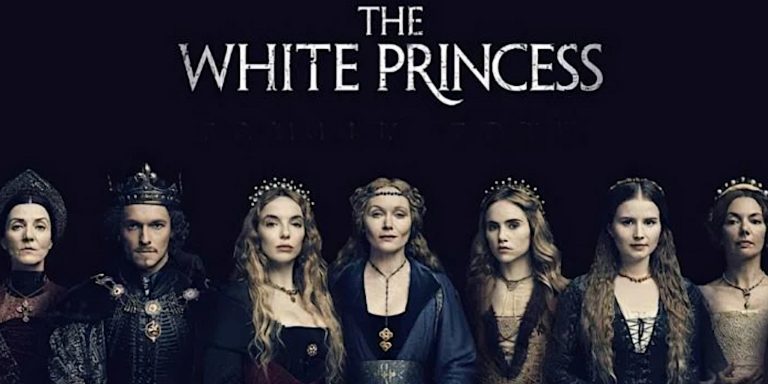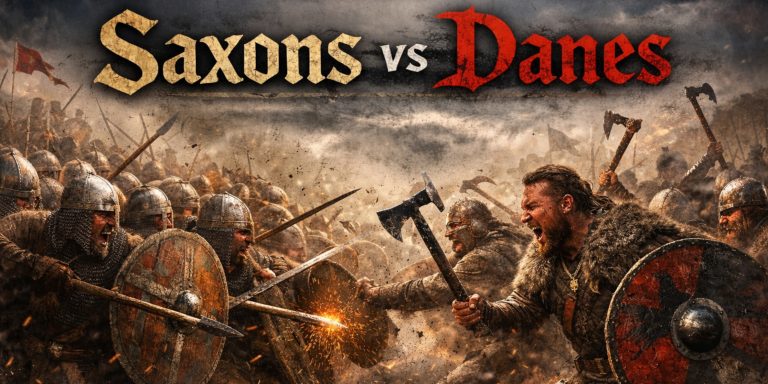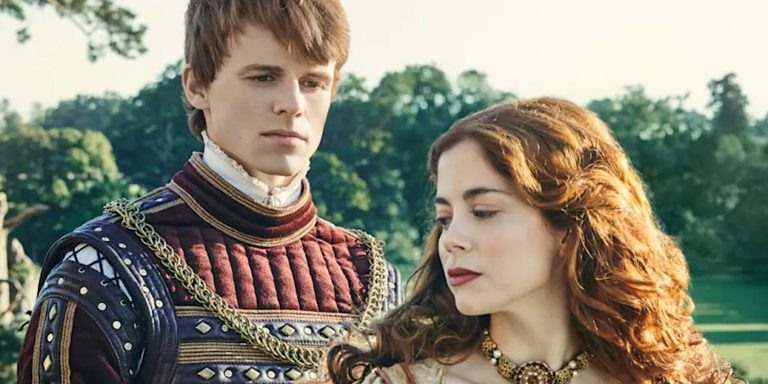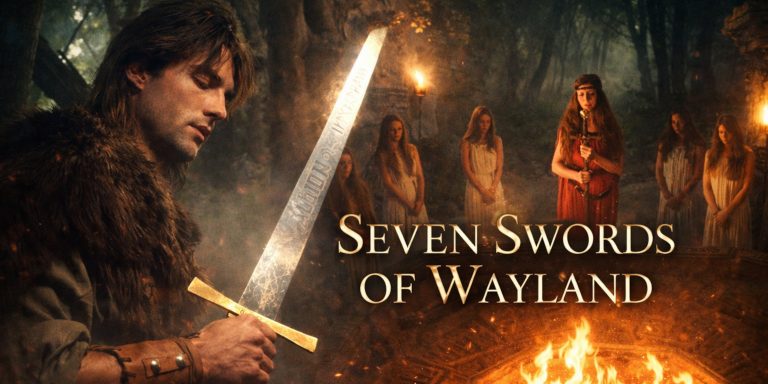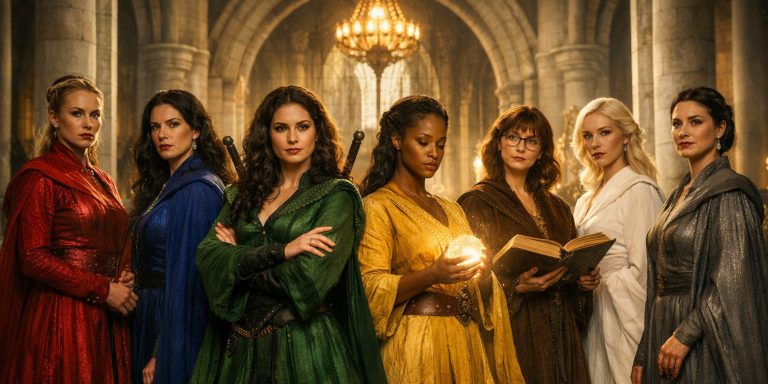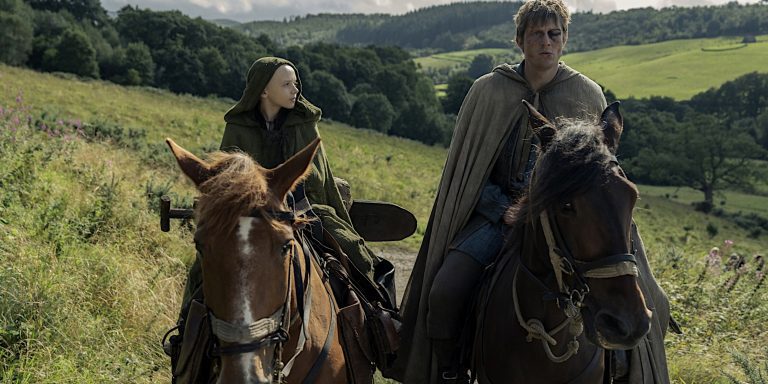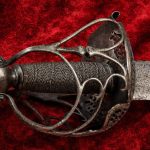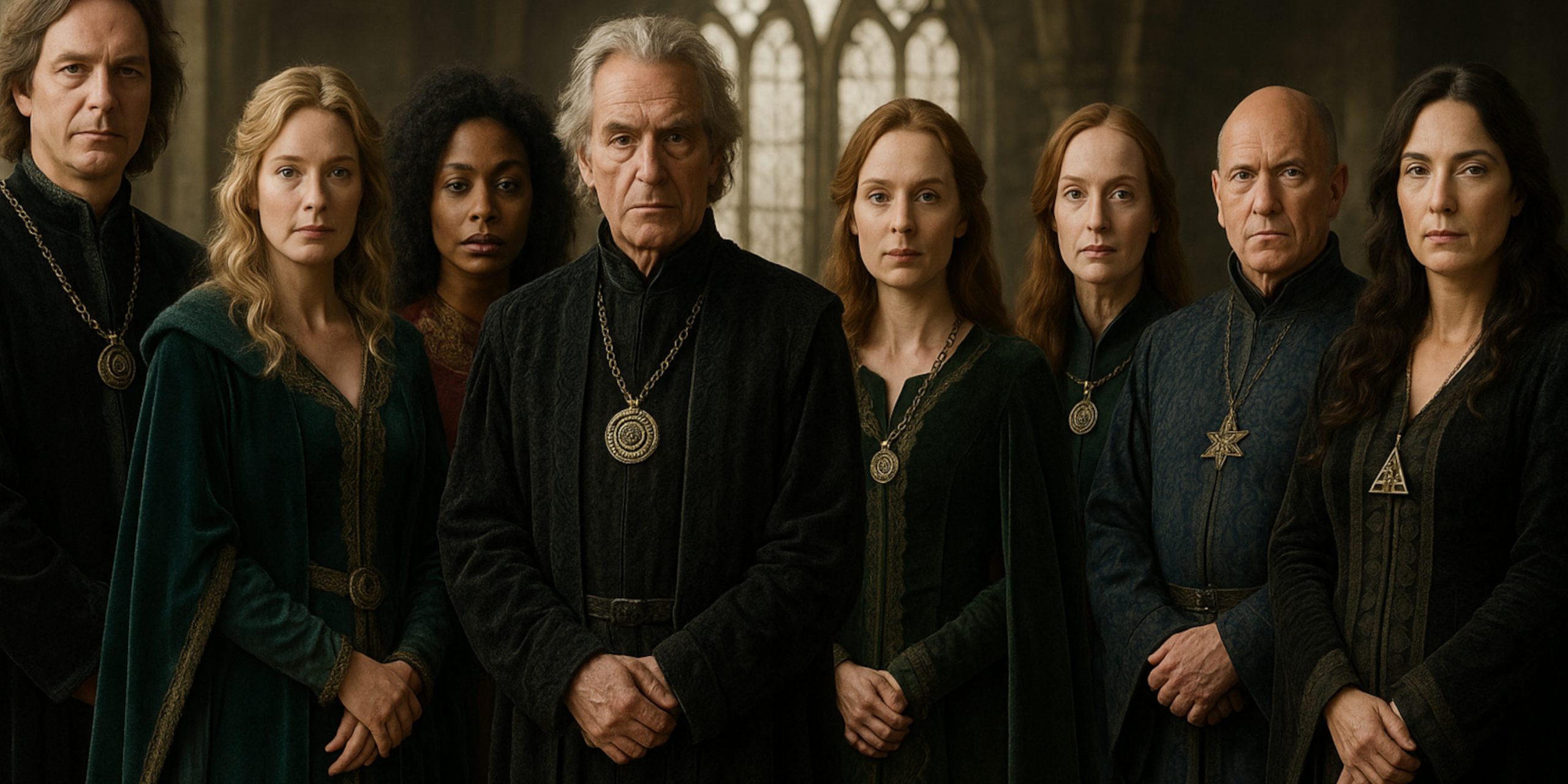
The Brotherhood of Sorcerers stands as one of the most powerful institutions in the world of The Witcher. Formed to regulate and control magic across the Northern Kingdoms, it brought together some of the most brilliant yet dangerous minds in the Continent. Beneath its polished surface, however, lay bitter rivalries, clandestine agendas, and a deep distrust of the very monarchs it claimed to serve.
Origins and Purpose
The Brotherhood was created following the Conclave of Wizards at the Isle of Thanedd. Its original mission was to serve as a neutral advisory body to the rulers of the North, ensuring the responsible use of magic and maintaining political stability. But from the start, the Brotherhood was anything but impartial. Sorcerers saw themselves not as servants, but as stewards of the world’s future.
Led by figures such as Vilgefortz of Roggeveen and Tissaia de Vries, the Brotherhood operated as both a council and a school of power. Its headquarters at Aretuza and Ban Ard became key centres of magical education, training future generations of mages and sorceresses under strict doctrines.
Internal Divisions and Political Influence
Despite its lofty ideals, the Brotherhood was riven with internal factions. Some mages aligned themselves with specific kings or queens, seeking influence over courts and conflicts. Others pushed for magical supremacy and resented the constraints placed on their powers.
The most dangerous rift appeared between those who supported co-operation with humans and those who believed in manipulating politics for their own ends. Vilgefortz, a charismatic and ambitious sorcerer, epitomised the darker path. Behind his refined exterior was a man who saw no ethical limits in the pursuit of power.
This split came to a head at the Thanedd coup, a violent clash between pro-Nilfgaardian and pro-Northern mages. The Brotherhood was shattered, and its authority collapsed almost overnight. What had been a unified force of magical governance dissolved into scattered loyalties and personal vendettas.
Key Figures
- Tissaia de Vries: A powerful advocate for order and discipline, she championed the idea that mages must serve the world, not rule it. Her eventual disillusionment with the Brotherhood’s politics led to her tragic end.
- Vilgefortz of Roggeveen: Highly skilled and ruthlessly ambitious, Vilgefortz sought not balance, but domination. His betrayal at Thanedd and his role in the Northern Wars marked him as one of the Continent’s most dangerous manipulators.
- Philippa Eilhart: Perhaps the most calculating of them all, Philippa used the Brotherhood as a stepping stone to form her own secret organisation, the Lodge of Sorceresses, after its fall.
Secrets and Subterfuge
From the very beginning, the Brotherhood’s operations were shrouded in secrecy. Forbidden experiments, hidden alliances with Nilfgaard, and mind control of monarchs were all whispered about in private halls. Few could discern where public duty ended and private schemes began.
Its involvement in major events like the assassination of King Demavend or the manipulation of Princess Ciri’s fate shows just how deeply entangled the Brotherhood had become in the Continent’s bloodiest conflicts. Rather than preventing war, the Brotherhood often fanned its flames behind closed doors.
Collapse and Aftermath
Following the Thanedd Rebellion, the Brotherhood lost all credibility. Many of its members were killed, others scattered or went underground. The vacuum left behind allowed the Lodge of Sorceresses to rise in its place, a more covert and female-led organisation that would play a similar game with even higher stakes.
The downfall of the Brotherhood did not end the influence of mages, but it did shift the balance of power. Magic would continue to shape the world, but now through whispers, illusions, and hidden hands rather than public councils.
Legacy
In the eyes of many, the Brotherhood was both a necessary evil and a cautionary tale. Its scholars helped advance magical theory, but its leaders fell prey to the same greed and pride as the kings they claimed to advise. It was a council that tried to rise above politics, only to drown in it.
Despite its end, its history remains a vital part of the world of The Witcher. The ruins of the Brotherhood’s influence still echo through the Continent, and its lessons are not easily forgotten.

